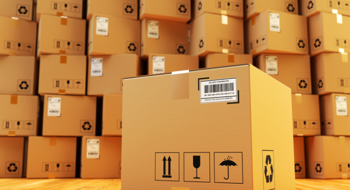
The supply chain is changing
You will have noticed the long list of new controls at the border, with some members of UKWA’s Logistics Users Group calling it ‘Revenge Recovery’. In the group’s survey of members on the impacts of the EU-UK Trade and Cooperation Agreement and the introduction of new customs and border procedures from 1 January, results show 78% have experienced order intake delays from the European Union, with 81% citing the unpreparedness of EU traders as the major issue. 53% report having being affected by ‘double duty’ and Country of Origin rules, while 54% say they have lost business and have seen the transfer of warehousing and distribution activity to the European Union.
Traditional retailers have to find new ways to get to the doors of paying customers and have been using a blend of in-store and ad-hoc fulfilment, and click-and-collect or 3rd party home deliveries, while supermarkets are making substantial profits and investing in new warehousing systems and delivery fleets. The warehousing model is changing as more consumers select and expect deliveries in 1 – 2 days and a call for q-commerce (Quick commerce). Andrew Bird, managing director at specialist UK investor Warehouse REIT, notes in some locations “the warehouse sector now offers very nearly the same returns to investors as residential development. In at least a few cases I’ve heard of around Greater Manchester they have managed to outbid residential developers.”
Data from Cushman & Wakefield suggests that 2021 could be a record year for speculative development with as much as 2 million sq ft already committed during the first 3 months of the year. There is a need to move stock closer to consumers, improve agility and meet delivery expectations, and there is a growing need for 3PLs to step in to smooth over all the gaps by the winds of change. 3PLs are expected to adapt at pace and to manage the additional administrative burden of Brexit and the ongoing challenges in stock and delivery.
Additional tasks are required to fulfil orders
Whether you fulfil mainly B2B and Concessions or B2C, the demand for additional tasks is on the rise. You may find with the wave of new B2B clients you take on, there are additional labour intensive moments. Each unit needs to be picked and scanned into shipping cartons, box-end labels printed and packing lists need to be created at the unit, SKU and carton levels. For B2C, there’s the need for everything to be picked and scanned, with paperwork printed and courier labels attached and all data passed back to the client’s systems in real-time. There may be other changes you have to consider, including barcoding and quality inspection.
The ongoing, changing environment presents a challenge
This is a time of volatile E-commerce fulfilment and if the pandemic has shown us anything, 3PLs need to expect the unexpected. Combine website and product spikes, peak periods and new products you might not have the right set of rules for, with a decrease in team members and new warehousing layouts.
You may have already established partnership agreements to foster co-operation in difficult times, but need to look into new tech to compensate for the change. Automation is being pinned as a growth area, with experts predicting this market will double in value (from $15bn to $30bn) by 2026, yet as much as 90% of picking is still manual. Adoption of automation in this area might be slower.
The best solution for right now
So how do you overcome the new challenges such as on-site labour shortages and the rapid increase of business, coupled with global travel restrictions? The answer is a quality, reliable and customer-focused order management solution like Mintsoft. Many 3PLs and fulfilment houses already have a WMS (warehouse management software), but you can bolster your operations further with a cloud-based order management system (OMS).
An OMS tackles the issues inside the warehouse and can manage all the processes related to orders and shipping too. By automating key parts of the fulfilment process, 3PLs, like you, can save time and costs, reduce error and react quickly to market demands.